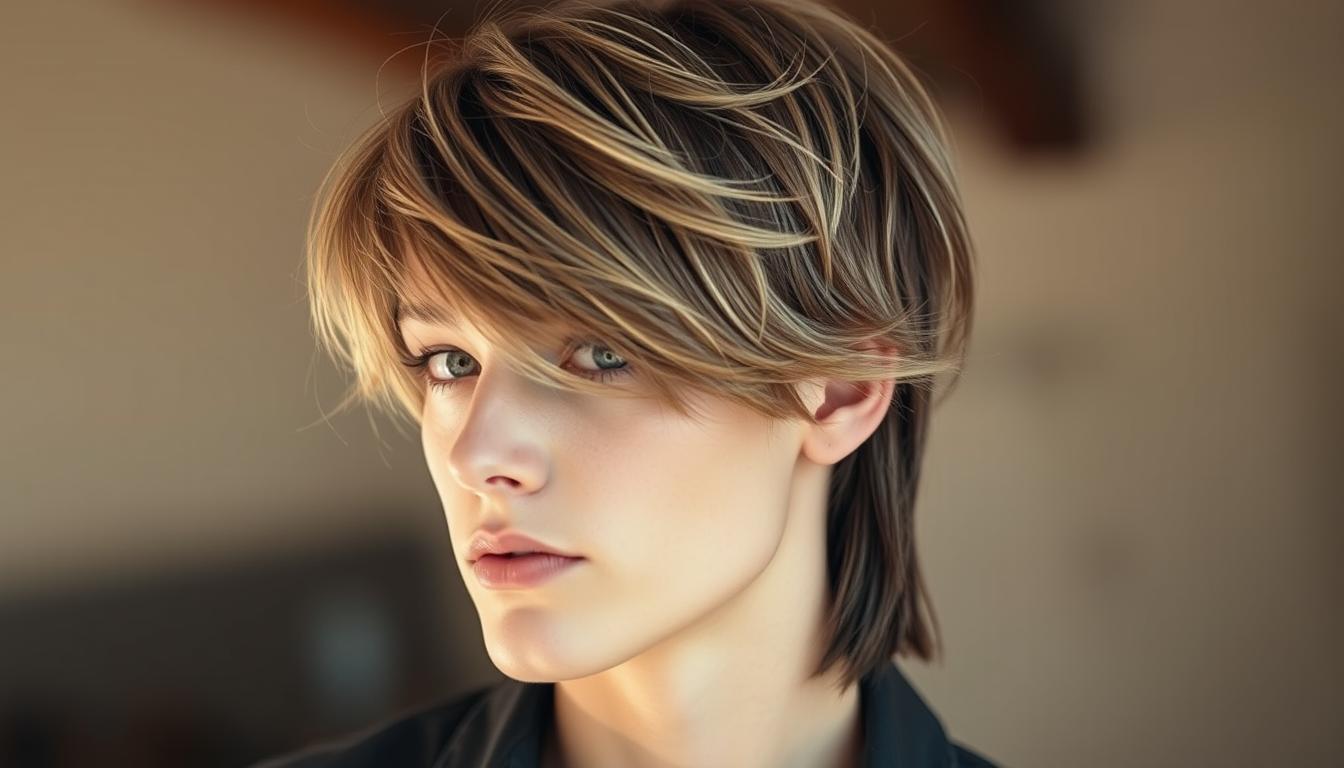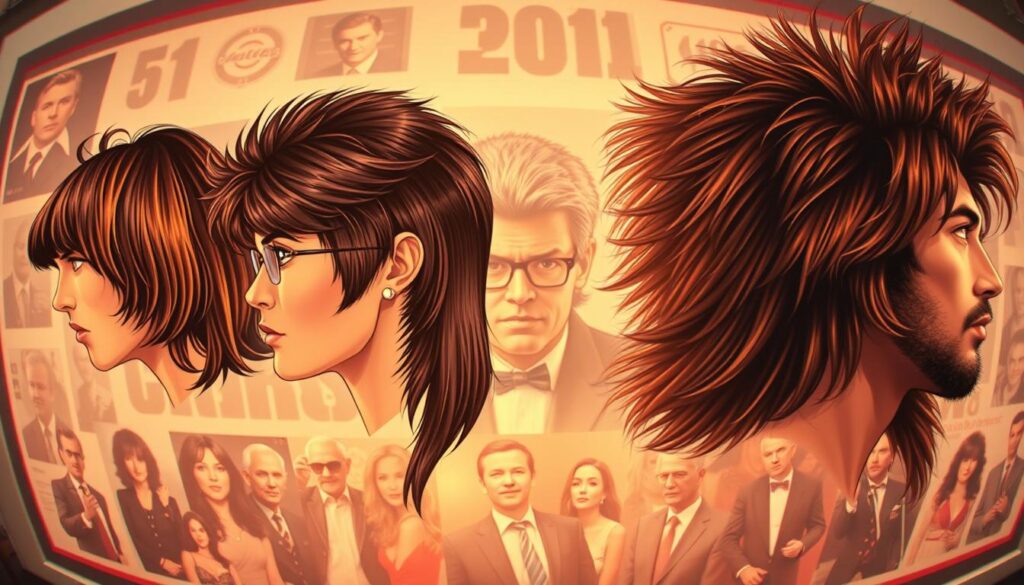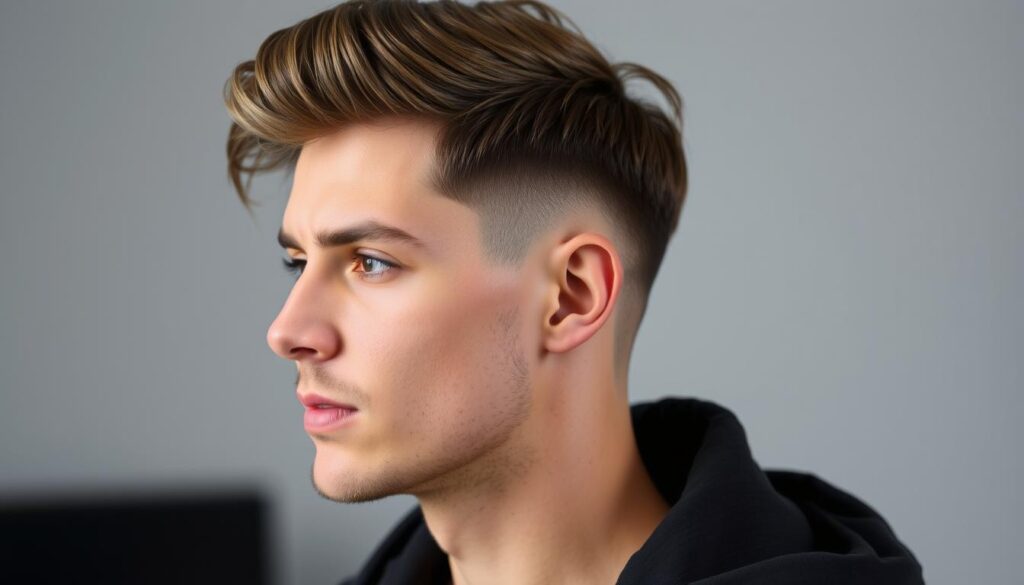
What if the ultimate symbol of rebellion could also be the pinnacle of modern style? Once dismissed as a relic of the 1980s, this daring hairstyle has clawed its way back into the spotlight—but with a twist. Today’s version isn’t just about shock value. It’s a calculated blend of edge and sophistication, designed for men who crave authenticity without sacrificing versatility.
Gone are the days when this look was reserved for rockstars and outsiders. Now, it’s embraced by professionals, creatives, and trendsetters alike. The secret? A clever balance between sharp tailoring and free-spirited texture. Whether you prefer a subtle taper or bold contrast, the modern iteration adapts to your hair type and lifestyle.
Why does this style resonate so deeply today? It’s more than nostalgia. Younger generations are redefining masculinity, blending retro charm with forward-thinking aesthetics. The result? A cut that feels both timeless and fresh—a visual rebellion that fits boardrooms and barbershops equally well.
Key Takeaways
- The modern mullet combines 80s rebellion with sleek, adaptable styling for today’s trends.
- This hairstyle works for diverse hair textures and face shapes, offering personalized variations.
- Its resurgence reflects shifting ideas about masculinity and self-expression among younger men.
- Styling techniques allow seamless transitions between professional and casual environments.
- Barbers now use advanced fading methods to create balanced, eye-catching silhouettes.
Exploring the Iconic History and Evolution of the Mullet

Rebellion wears many faces—none more iconic than the hairstyle that defined generations. Born from 1970s counterculture, this look became a badge of defiance for musicians and free spirits. Artists like David Bowie turned it into a stage-ready statement, blending glam-rock flair with blue-collar grit.
Discovering Its Retro Roots
The phrase “business up front, party out back” captured its dual personality. Working-class men in America and Australia loved its practicality—short layers for daily tasks, longer strands for weekend adventures. Rockstars like Paul Young amplified its wild reputation, making it synonymous with loud guitars and louder lifestyles.
| Era | Key Features | Cultural Impact |
|---|---|---|
| 1970s-1980s | Sharp contrast between front/back lengths | Symbolized rebellion & working-class pride |
| 2020s | Softer fades, textured finishes | Represents vintage nostalgia & individuality |
The Modern Revival and Cultural Shift
Today’s version swaps harsh lines for seamless blends. Social media fuels its comeback, with Gen Z embracing its retro-meets-edgy appeal. Barbers now use advanced techniques to tailor the look—think tousled waves or polished crops—matching diverse personal styles.
Why now? Younger generations crave authenticity. They’re mixing old-school charm with modern versatility, proving this style isn’t just a relic—it’s a living art form.
Understanding the Mullet Fade Haircut

Imagine a style that merges sharp precision with untamed flair—welcome to the evolution of boundary-pushing grooming. This contemporary approach reimagines retro vibes through meticulous blending, where structured edges meet organic flow. It’s not just about length contrasts, but how each element collaborates to frame your features.
What Makes It Unique?
The magic lies in the tapered sides that dissolve seamlessly into your skin. Unlike abrupt transitions, modern techniques create gradients that highlight the textured top. Barbers artfully balance bulk reduction with natural movement, ensuring the longer sections never feel disconnected from the shorter areas.
Key Elements of the Look
Central to this design is the heavy fringe, which adds depth and direction. When paired with closely cropped temples, it creates a striking silhouette that’s both rugged and refined. The real game-changer? How the texture along the crown interacts with the smooth fade, offering endless styling flexibility.
This hybrid approach works because it respects tradition while embracing innovation. Whether you’re aiming for subtle dimension or bold statements, the interplay between lengths ensures your look remains cohesive. It’s rebellion polished for today’s standards—a nod to the past with eyes firmly on the future.
Diverse Mullet Styles and Variations
Why settle for ordinary when your look can tell a story? Today’s mullet hairstyles range from whisper-subtle to head-turning drama. Each variation serves different personalities, letting you choose how loudly your hair speaks.
Contemporary Meets Retro
Modern versions blend sharp edges with soft textures. They use gradual tapering instead of jarring length changes. Classic designs kept things raw, while today’s style adds polished touches through layered blending.
| Feature | Modern | Classic |
|---|---|---|
| Length Contrast | Subtle gradient | Extreme difference |
| Texture | Natural movement | Untamed bulk |
| Fade Technique | Skin-to-hair transition | Blunt lines |
| Cultural Perception | Office-friendly | Rebellion symbol |
Longer versions make bold statements with cascading layers. They work best with straight or wavy hair. Curly textures transform the look into voluminous masterpieces—springy coils add bounce without extra effort.
Prefer low maintenance? Shorter crops keep the essence without daily styling. Textured tops paired with burst fades create modern edge. Your cut becomes a canvas—mix elements to match your rhythm.
Celebrity Influence and Cultural Impact
When style icons speak, the world listens—and right now, they’re shouting about a revived classic. From sports arenas to concert stages, influential figures are proving this hairstyle works anywhere. Their choices ripple through fashion trends, making bold statements accessible.
Redefining Mainstream Standards
Cricket star Virat Kohli stunned fans with a sleek modern mullet haircut during IPL 2025. His version blends cropped sides with textured length, pairing athletic energy with retro charm. It’s practical for matches yet sharp enough for sponsor events.
| Celebrity | Style Features | Cultural Impact |
|---|---|---|
| Patrick Mahomes | Low fade with tousled crown | Makes athletic looks feel fashion-forward |
| Harry Styles | Messy layers with curtain bangs | Bridges gender-neutral style boundaries |
| Neymar Jr. | Sharp undercut with voluminous top | Exports Brazilian flair to global audiences |
Entertainers like Jeremy Renner add rugged edge to Hollywood roles. His Hawkeye look mixes military precision with rebellious length—proof that even superheroes embrace texture. Meanwhile, musicians transform stages into runways. Styles’ bedhead-inspired waves became an instant TikTok trend.
“This isn’t just hair—it’s a cultural reset button,” notes celebrity stylist Marco Testa. “Men realize they can command attention without sacrificing personality.”
These high-profile adoptions shattered old stereotypes. Boardrooms now accept what was once considered radical. The shift shows how men today balance self-expression with professionalism—one strand at a time.
Tips and Tricks for Mastering Your Mullet
Want your signature style to stand out in any crowd? The right techniques elevate your look from basic to bold. Start with clean, healthy strands using volumizing shampoo and conditioner. This foundation adds body without weighing down your hair.
Styling Techniques for a Bold Look
Apply sea salt spray to damp strands for instant texture. Scrunch upward from ends to roots for that windswept, beachy finish. Use a diffuser on low heat to boost volume while protecting your hair from damage.
For structured shapes, work clay through dry strands. It gives flexible hold with matte finish—perfect for reworking throughout the day. Matte pomade creates defined spikes at the fringe for edgier variations.
Personalizing It to Suit Your Vibe
Texturizing powder adds grit to fine hair types. Focus application on roots for lift that lasts. Experiment with side-swept fringe or tousled crown layers to match your personality.
- Blow-dry forward for dramatic curtain bangs
- Twist random sections with wax for artful disarray
- Pin back sides for temporary undercut effects
Your look evolves with these adaptable methods. Whether you prefer messy bedhead or polished peaks, these tips keep your style fresh from dawn to dusk.
Tools, Products, and Techniques for Optimal Styling
Your style arsenal needs precision tools and smart formulas to truly shine. The right equipment transforms daily grooming from chore to craft. Let’s explore the essentials that elevate texture while keeping your look intact through meetings, workouts, and everything between.
Essential Products to Enhance Texture
Start with three non-negotiables: a wide-tooth comb for detangling, a boar-bristle brush for smoothing, and a ceramic hair dryer with diffuser. These create the foundation for volume and movement. Pair them with formulas tailored to your strands:
| Product Type | Best For | Pro Tip |
|---|---|---|
| Lightweight Gel | Defined waves | Apply to damp strands before diffusing |
| Curl Cream | Springy coils | Scrunch upwards to avoid crunch |
| Sea Salt Spray | Flat or fine types | Spritz at roots for lift |
Struggling with flyaways? A flexible-hold hairspray tames without stiffness. For touch-ups, texturizing powder adds grit to second-day styles. “Layering is key,” says L.A. stylist Jenna Cole. “Start with moisture, build with hold, finish with texture.”
Thick hair thrives with mousse applied mid-lengths to ends. Fine strands need pea-sized amounts of clay to avoid weighing down. Always blow-dry with the diffuser facing upward—this boosts volume at the crown naturally.
Remember: less product means easier adjustments. Build gradually until you achieve your ideal balance of structure and flow. Your style should feel lived-in, not laminated.
Caring for Your Mullet: Maintenance and Health
Maintaining your bold hairstyle requires smart strategies. Regular trims every 4-6 weeks preserve the shape that defines this look. Professionals balance shorter front layers with flowing back sections, preventing a messy appearance.
Nourish your strands with sulfate-free shampoo and hydrating conditioner. Focus on the longer back area—it’s more prone to split ends. Weekly deep conditioning treatments combat dryness, especially if you have natural curls or coarse texture.
Blow-dry gently using heat protectant to maintain volume. For textured styles, apply lightweight serums to reduce frizz without flattening movement. Remember: healthy hair starts at the scalp—massage roots when cleansing to stimulate growth.
This cut thrives when you adapt care routines to different lengths. Protect ends overnight with silk pillowcases. Your head becomes a canvas of contrasts—keep it sharp through consistent care and quality products.
